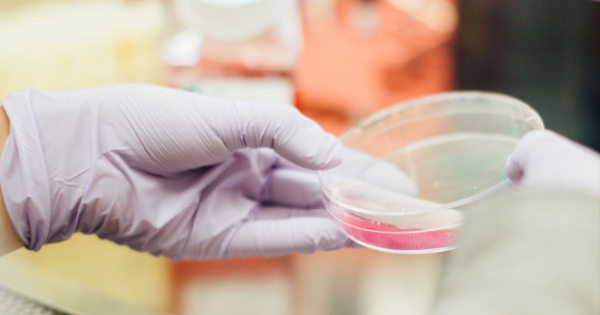For expectant parents, you want to do everything possible to protect both your health and the health of your child. Unfortunately, there are risk factors everywhere that can increase the likelihood of certain diseases, particularly cancer. Approximately 23,800 adults and 4,830 children are diagnosed with cancerous tumors of the brain and spinal cord each year, with brain tumors making up the majority of that number. Carcinogens are surprisingly common, so use this as a starting guide to protecting both your health and the health of your baby.
Allergens and airborne pollutants
This is by far the largest category of potential carcinogens, making it difficult to avoid. Some of the areas you might think have the cleanest air could actually be putting you at risk — the air quality in a closed space can be up to 500% worse than outdoors. Be aware of the air pollution in environments you find yourself in most frequently, and take precautions to avoid unnecessary exposure to unhealthy air by using air purifiers and face masks. These little steps can go a long way in reducing the amount of carcinogenic pollution you expose yourself to.
Educate yourself on “off-gassing”
In days gone by, consumers were educated to enjoy that “new car smell.” Now we know that those “fresh” chemical smells actually can be harmful to adults, and especially to infants and babies. Luckily today, most baby and adult mattresses are made with materials that will not harm you or baby. You can learn more at Greenguard.org and the baby products manufacturers association JPMA.org, both of which have seals for products that meet safety standards.
Since baby time also means changes in house, car, and furniture, educate yourself on what you need to do let new products air out before bringing them into the home. In some cases, that may mean leaving them on the front lawn for a few days!
Certain metals
While drinking out of an aluminum can isn’t going to directly cause cancer, you should still aim to be cautious about what metals you’re exposing yourself to. Metal production or large amounts of heavy metals could increase your risk of developing cancer. Remember that exposure can happen in a variety of ways, including shipping of other products or building materials. If your job or lifestyle requires you to spend time around shipping containers or other large metal structures, make sure to do your due diligence. Some 11 million unused shipping containers around the world could potentially be used for a variety of purposes; be aware of what your surroundings include to limit your carcinogen exposure.
Alcohol and tobacco
While you shouldn’t be drinking or smoking to begin with during pregnancy, it’s important to pay attention to the behaviors of the people around you as well. Second-hand smoke poses a significant risk to expectant mothers and their babies, even if you yourself have never smoked. Not only does secondhand smoke increase the risk of cancer development for both you and your child, it can also increase the odds of your child being born with addictions to nicotine. Similarly, alcohol is surprisingly prevalent in American culture and society; in 2016, the United States ranked second in worldwide beer production. Alcohol and tobacco can directly contribute to the development or worsening of existing cancers, so limit how much you’re around these to stay healthy.
Sun exposure and radiation
Finally, while you might want to enjoy a good vacation or spend some time out in the sun, it’s vital that you’re doing what you can to protect yourself from harmful radiation. Sun exposure and tanning are some of the most common contributors to the development of skin cancer, and while they might seem like no big deal, they’re still contributing to your overall radiation exposure. Protect yourself from the sun when going outside, even on cloudy days or during the winter. The sun’s rays might not be as harsh, but it doesn’t have to be sunny out for it to do damage.
Avoiding carcinogens can be challenging with how many of them exist as a normal part of daily life. Luckily, just being aware of what carcinogens could potentially be dangerous for you and your baby helps you take steps to protect your health during pregnancy. Watch out for these common carcinogens both during your pregnancy and afterward to promote your infant’s future health.
